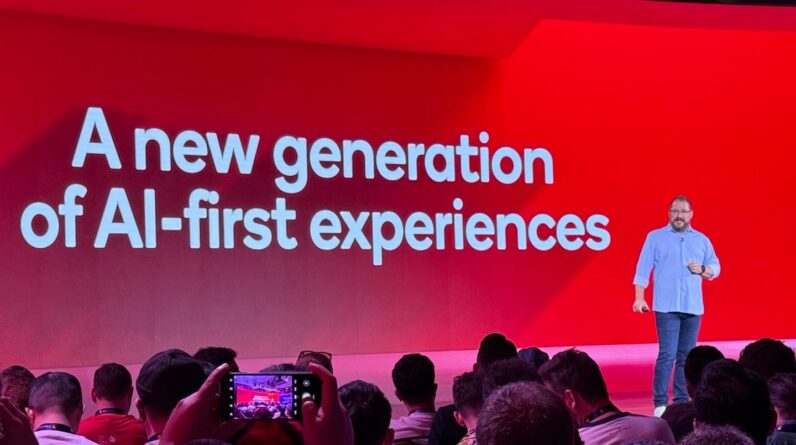
Artificial intelligence is the big thing in the world of smartphones at the moment, with practically every smartphone manufacturer getting in on the generative AI fun in some way or form, particularly when it comes to high-end smartphones.
Samsung has Galaxy AI, Apple has Apple Intelligence, Google has its un-named but massive suite of AI tools and features, Honor has Magic Portal, and so on.
What you’ll actually be able to do with generative AI on your device will depend on the manufacturer; Samsung focuses on productivity and creativity with the likes of transcription, text rewriting and image editing tools while Honor wants to provide an AI assistant that knows what you want to do, simply by dropping content onto an app.
These are undoubtedly handy features, but they’re not exactly game-changing – in their current iteration, anyway. The problem is that AI is very expensive to run at the back end, with plenty of servers and massive infrastructure required for cloud computing.
Samsung has already said that Galaxy AI will become a premium service at the end of 2025, and to access the complete suite of AI tools on the Pixel 9 range, you’ll need the premium Gemini Advanced subscription.
In fact, Google has just made a deal with Kairos Power to buy power directly from next-gen nuclear reactors in the coming years, just to use to power its growing AI infrastructure. Is it really worth that much investment?


Well, according to Qualcomm, makers of the top-end Snapdragon 8 Elite chipset that just so happens to be one of the most capable chipsets around for generative AI, this is only the beginning of an AI revolution that could completely change how we use our smartphones.
Speaking at this year’s Snapdragon Summit, Cristiano Amon, Qualcomm’s president and CEO, gave us a glimpse at what Qualcomm envisions for the future of AI – and it’s pretty wild.
Essentially, Qualcomm’s vision is a smartphone without apps – or not as we know them, anyway. Amon started by discussing banking apps; while banking apps currently communicate with the cloud to get your latest transactions and balance details, it’s possible that an AI assistant could handle this all for you.
Amon gave examples of asking your AI assistant questions like ‘what are my last three transactions?’ and ‘what’s the progress on my savings plan?’. The AI Assistant then gets this information for you, and presents it all on screen.
This AI Assistant would completely negate the need for a banking app, though Amon suggests that future AI Agents could render apps on demand. Not only that, but the assistant could even personalise the layout of the app to your preferences.
You could also ask the AI assistant questions like ‘do I have enough money on my card for this purchase?’ when browsing the web for new clothes. The AI assistant would understand the context of the question by analysing what’s on screen, pull up your bank account information and deliver the answer in simple, human terms without needing to switch apps.


It goes even further than that, however, with the user asking the AI assistant to purchase the item on their behalf, negating the need to fill out elements like bank details and delivery information – all info that your AI assistant will have at hand.
“It’s a different experience on a thing we use every day” Amon proudly explained. However, that’s boosted even further by the use of multimodal AI, with the AI assistant able to analyse and understand images. Amon gave an example of being able to take a photo of a bill that you received in the post and get the AI assistant to pay it for you.
It’s a very interesting idea, and one that Qualcomm is making steps towards with support for AI agents with the release of the Snapdragon 8 Elite, but we’re still quite a while away from ditching the vast majority of the apps on our smartphones.
Still, it shows the long-term aim for AI from one of the biggest manufacturers around, and while it might not be changing in the very near future, we’ve likely already started down that path.






